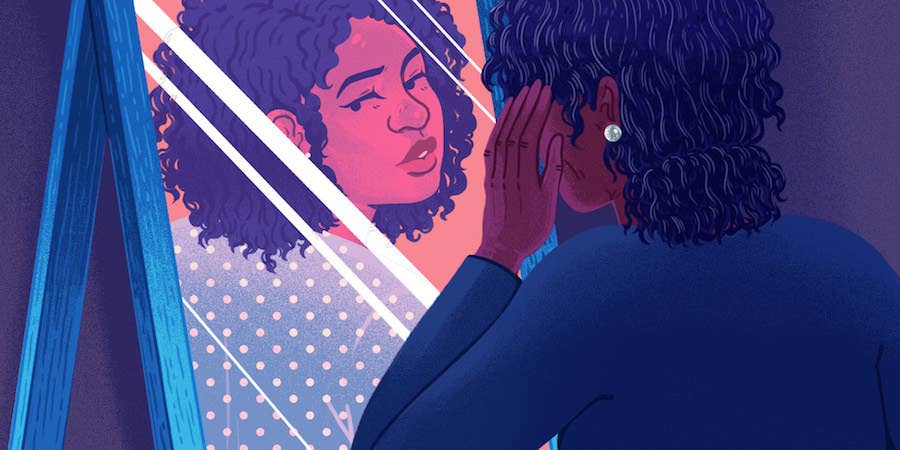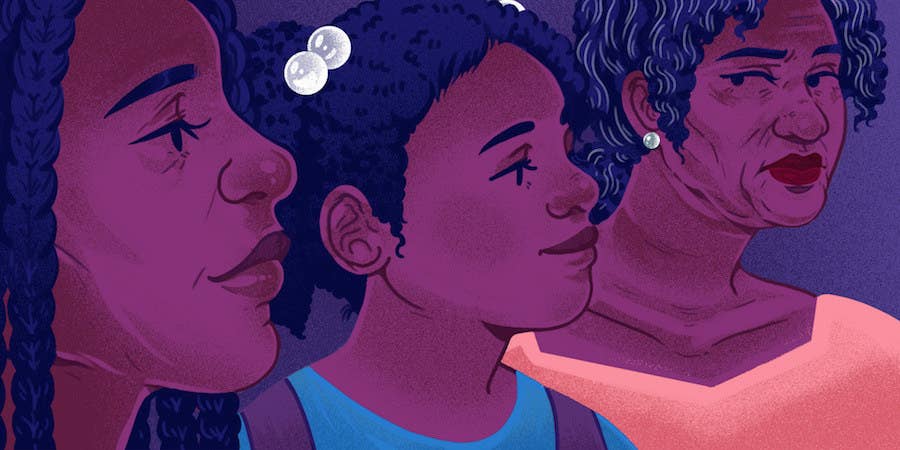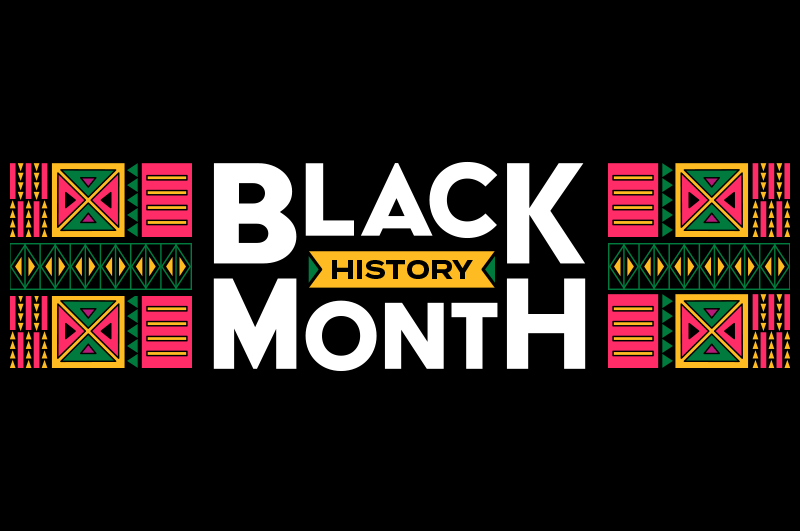
I was six-years-old, staring at my father's mother's reflection in the bathroom mirror as she applied her signature red lip with expert precision. She looked perfect. “Always put makeup on, Nanee,” Nana instructed me. “You never know who you’re going to meet.”
Throughout my childhood into my early twenties, I adopted both her love for face masks, lipstick, and headwraps, and her warped standards of beauty: a thin waist, long legs, and light skin. Nana was Brazilian and Cape Verdean, so a black woman for all intents and purposes. However, she identified more with her colonizers. Every discussion we've ever had about our roots always ended with her saying "We are Portuguese," which was her way of separating us from our blackness. This is a common thread among some older generations of the black diaspora because the closer in proximity you are to whiteness, the more privileges you are granted in society.
Growing up, she had a lot to say about my appearance. I have a vivid memory from 2012 when I’d just walked into my aunt’s house. Nana greeted me, not with a “hello” or sentimental greeting, but with a very matter-of-fact “You look tired.” She pointed out the puffy bags underneath my eyes, advising me to either get more rest or put some ice on them. Now, every time I look in the mirror, I apply concealer even if I don’t need it. The hundreds of dollars I’ve spent on just the right shade of concealer is embarrassing. Two decades later her words still creep into my head, even when I'm arching my wing with such sharpness it looks like it might actually fly.
If it wasn’t my makeup, it was the shape of my body and how I navigated in it. "You know when I was 17 I was never really fat. I had an athletic body type," she said. She was overweight when she was young, but not to an “unacceptable” extent. My grandmother was sporty and wanted me to know this, hoping it would motivate me to be more active and lose weight. One Christmas she actually bought me a bootleg Wii game that simulated working out. "It's going to save your life, Nanee," she told me.
When I finally perfected the art of contour and invested in outfits that flattered my thick thighs and décolletage, I still preferred a quick, fresh-face beat and a sturdy pair of jeans for day to day. Only recently did I stop hiding behind a full face of makeup during our bi-annual Thanksgiving and Christmas Eve visits (any more time and I would surely lose my mind). That annoyed Nana like no other.

That desperate need I had to mask any physical imperfections behind caked on cosmetics before seeing my own grandmother is actually quite jarring, especially considering that I'm a pretty confident and self-assured woman any other time. I’ve always known I was beautiful, and I’ve never doubted that fact, but I also valued Nana’s opinions. It went beyond makeup and fashion to the conscious shrinking of my very expansive essence to make her feel comfortable. To prepare myself for the inevitable twice-a-year visit, I would have to box up the pieces of myself that made me, me just so she wouldn’t try to pull them from me. Laughs would be stifled in her household just so she would be able to express her problematic ideals. My mother, a dark-skinned woman, would usually be the point of contention. She was, and still is, her arch enemy while I am her foil. So many of the problems between Nana and I always came back to one central point: my mother and how she walks proudly and unabashedly in her blackness. Nana was never a fan of how mom asserted herself and stood firmly in how beauty radiates from the soul. Mom would teach her children the joys of black beauty and emphasize her points with the teachings of Maya Angelou and Toni Morrison, while Nana still can't comprehend why being black is something to covet, not shame. Two years ago Nana and I got into a screaming match because she had the audacity to discuss my mother in a disrespectful matter in front of my sister and me. I haven't stepped foot in her house or spoken a word to her since.
If I wanted to be positive I could say her nitpicking was her warped version of love. And if I wanted to be Freudian I’d say she has deep-seated insecurities she wound up projecting onto me since I look exactly like her. I’m not kidding; I’m a carbon copy. From the wide hips to the hourglass figure, high cheekbones and skin tone, we are mirrors of each other. But what I most often think about is how she uses me as an empty vessel of things she would tell her younger self if she had the chance. Nana, I believe, overcompensated on the things she could control (her weight, makeup, and style of dress), and drew attention to her "favorable" Eurocentric features like her straight nose, pronounced cupid's bow, and even her long, thin legs. This was her way to make up for not having light skin like her sisters. "My mother always told me she drank a lot of coffee when she had me, and that's why I came out so brown," Nana told me once. She was relieved my sister and I didn’t get as dark as my mother, and when I was born she tried to explain away my dark skin tone, saying I needed time for my "mixed blood" to settle. That was after she told my parents I didn't resemble her or her family.
Because of her skewed views, it took me a long time to embrace all of my culture. I even put off learning Portuguese because every time I got close to exploring the other parts of my identity, it felt like I was erasing my blackness. And I know that may seem silly, but years of Nana projecting self-hate of her own blackness has made me obsessive about holding onto mine. It’s taken years to unlearn the colorism I carried and how to adopt radical self-love to combat insecurities that pop up now and again. I had a conversation with my mother about adulthood and she said one of the best parts about it is figuring out what lessons from your elders you should keep and what lessons you should throw away. I've finally decided that those warped beauty standards are parts of my puzzle that are better off left in the box, and my next step is to live peacefully in my blackness as well as my Latinx roots, equally and proudly.
Ignacia Fulcher is a writer based in NYC. You can get in touch with her on her Instagram or Twitter.
Check out even more Black History Month content here!


